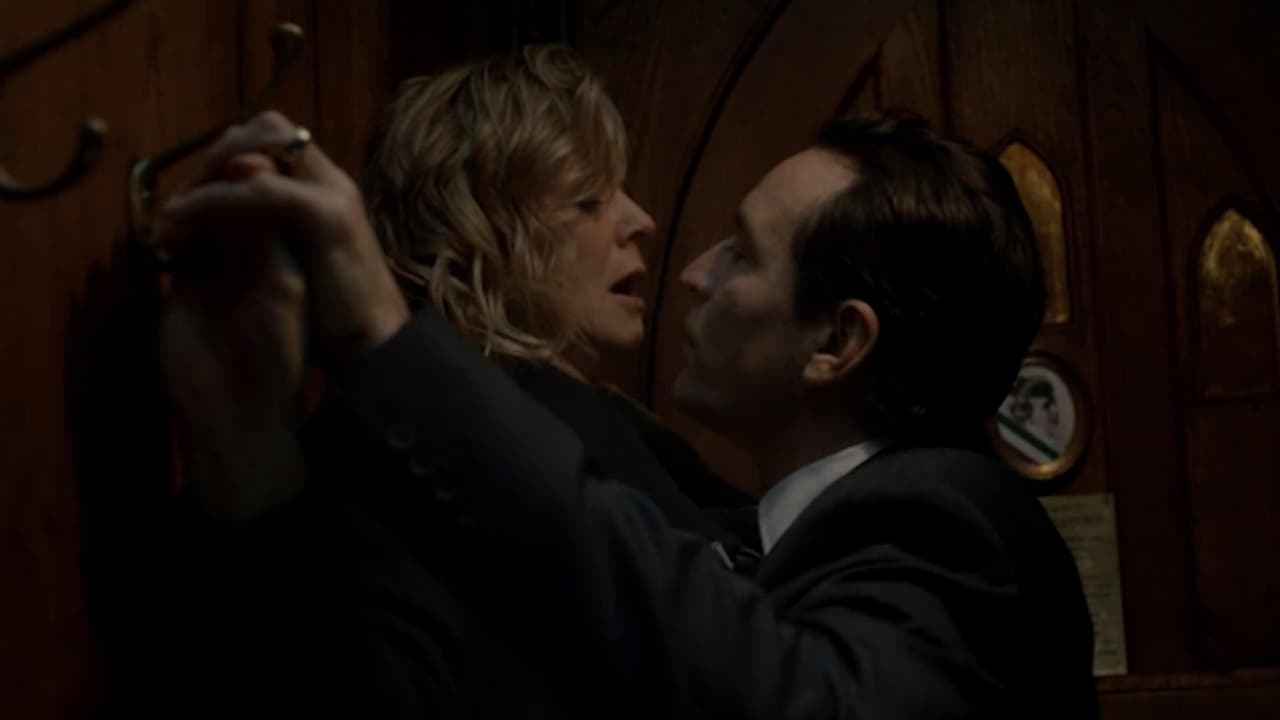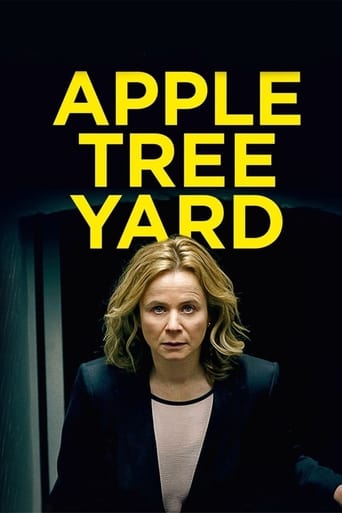

Good idea lost in the noise
... View MoreBest movie ever!
... View MoreIt's fun, it's light, [but] it has a hard time when its tries to get heavy.
... View MoreThis movie feels like it was made purely to piss off people who want good shows
... View MoreI was referred to this miniseries via IMDB links, I had not heard of the novel of the same name and did not delve into its synopsis (usually I try to avoid creations with strong court session elements and/or affair-based troubles). The beginning was promising, particularly sequent recognition of Emily Watson´s talent, but the the events and some twists began to take the turn usually created by sensitive female authors, and the follow-up of "bad stuff" in court did not impress me much either. Sometimes it seemed that even the small number of episodes (4) was excessive, and then a thought came to me that it was Mrs. Watson only whom I focused on... Other performances, incl. Ben Chaplin´s, were just pleasant, but nothing special.Often enough, but not this time, having in mind a British series - so 7 points from me, and I might recommend it to Mrs. Watson´s admirers only.
... View MoreDo producers check continuity details?The drama is set now, and made in 2017The defendant is told that she might spend a few days on remand in Holloway Prison. Sounds reasonable, EXCEPT Hollow was closed in 2015.Perhaps the author's mistake but should have been checked, surely?
... View MoreI have to say this is one of the more thought provoking series I have seen in a while, probably because there is a lot of it I don't understand and even more that I understand but which defies logic. But perhaps that is exactly what its producers intended. There can surely be few things more boring, or unsexy, than someone else's affair. Thrilling for those involved I'm sure but excruciating for everyone else, and people endlessly rutting in public places hardly constitutes a plot. Consequently I almost gave up about 50 minutes into the first episode. The extreme ferocity of the rape at the end of this episode certainly produced the shock the producers intended, although the micro-second "Jekyll and Hyde" transition from harmless academic to brutal rapist animal did seem too excessive to be likely. The rapist's subsequent reversion back to someone who sends flowers and texts and acts more like a besotted, deluded dingbat rather than a malicious stalker adds to the confusion. It is never explained how George Selway knew about their affair and indeed by the end of the series one wonders if he ever did know. Even if he did, it beggars belief he would rely on this tawdry piece of information to ensure she did not report the rape, so the rape, and the non-reporting of it, simply do not make sense. In the immediate aftermath of the rape the viewer is led to think that the reason Yvonne does not report it is so her affair does not come out into the open. Then suddenly that whole scenario goes out the window and the reason for not reporting becomes because of the process and shame involved in doing so. It is all rather confusing. Surprisingly she has virtually no physical marks after this brutal ordeal, just the tidiest of finger marks and no sign of the shiner she should have had from being whacked in the face. To be honest I would have expected her to have more marks on her body from her shenanigans with Mark Costly down in the crypt. Through all this we are all wondering what she sees in this Costly character who has all the charisma of a sack of spuds. This, I suppose, is the whole point, that she has distorted this supremely dull person into her knight, and from this we really should have guessed right from the start that Yvonne is a sandwich short of a picnic, if not an entire hamper short of a picnic.Fast forward and we find our lovers sitting in a car outside the rapist's house. And again, thinking back, we should all have guessed that this sudden unexplained plot jerk means that some crucial information has been deliberately withheld from the viewer. Something unnamed but obviously dastardly goes down in George's flat so we are not surprised when the Police interrupt Yvonne and her family in a restaurant and arrest her. But on the other hand we really should be surprised because how did the police know she was involved and how did they know she was in that restaurant? What gave them away, and so quickly, is never revealed.In amongst all this we have a few red herrings thrown in for good measure, a troubled son whose story turns out to be irrelevant and a husband's dalliance with a student, which I presume is supposed to make our heroine look a little less slutty and justified in her affair.The trial is all a bit weird, being more a posthumous trial of George Selway for rape rather than a trial of Yvonne and Mark for murder. By the end of it we have a woman who has majorly perjured herself to the point no one would believe she had been raped at all, and we have no idea why a person who has clearly murdered someone gets convicted of manslaughter, nor how someone who is obviously an accomplice to murder escapes conviction completely. It is difficult not to think the series trivialises rape. We have, for instance, Yvonne not reporting a rape, and perjuring herself in Court, because she is apparently more ashamed of being discovered as a cheating wife than she is concerned about being raped, implying that in the scheme of things rape is the lesser offense. In the epilogue we find out what the crucial missing preamble to the murder was, and it is difficult not to feel a little cheated. Deliberately withholding information just to create a shock at the end is a cheap trick, it is like Sherlock Holmes, after painstakingly analysing the ash from a cigar and the tattoos on someone's back, announces the murderer is someone that has not even been introduced to the reader. We are left wondering just what else has been left out, or indeed if any of the bits we have been shown are actually true. The entire rug of the series is pulled from under us. Once again perhaps this dislocation is exactly what the producers wanted but it is treading a fine line between shocking and infuriating viewers. So what do we have at the end? A couple of loonies, a dead rapist and a bunch of question marks. My verdict is that while generally enjoyable the series is far too simplistic and that the only reason it "worked" at all is because it was so rushed that viewers mis- interpreted the obvious non sequiturs and gaping holes as being "deep" and "thought provoking" rather than the obvious plot flaws they are.
... View MoreDon't waste your time. A show like this makes a mockery of female intelligence. And the action is as slow as molasses to make matters worse. Who would believe a woman (and she's a highly educated scientist) could be so naive. The story is totally wrong implausible. However I m glad to see Emily Watson come out from all the frumpy roles I've seen her in. She looked quite attractive in Appletree Yard.
... View More